Flush with SoftBank cash, Sprint buys out Clearwire for LTE network

In its continued evolution and growth, the United States' third-largest wireless network operator Sprint announced on Monday that it will be acquiring wireless network Clearwire for a total of $2.2 billion, or $2.97 per outstanding share.
Sprint has had a long relationship with Clearwire, as the two companies were the biggest supporters of the WiMax wireless protocol. Soon after launching their respective first WiMax networks, Sprint and Clearwire joined forces in 2008.
Sprint buys $480 million worth of U.S. Cellular's Midwest wireless business

Third-largest U.S. wireless network operator Sprint on Wednesday announced it will be acquiring $480 million worth of wireless spectrum from eighth-largest carrier U.S. Cellular in various markets in five different midwest states.
The spectrum licenses encompass 10MHz or 20MHz blocks of space in the 1900 MHz band, the band Sprint is building its 4G LTE network upon. These expanded areas of coverage, which include urban areas of Chicago, St. Louis, South Bend, Indiana and Champaign, Illinois, will be included in Sprint's overarching Network Vision upgrade which began last year.
Hey, we know how you feel: Softbank gives half a million dollars in Hurricane Sandy relief

Japan's third-largest wireless carrier Softbank announced on Friday that it is donating $500,000 to the American Red Cross Disaster Relief Fund to support the relief efforts in East Coast areas seriously affected by Hurricane Sandy.
"Our thoughts are with the millions of people in the Northeastern United States who have been impacted by Hurricane Sandy," said Softbank Chairman and CEO Masayoshi Son in a statement on Friday. "With homes destroyed and families displaced, we hope that our donation can lend some needed assistance to those in the U.S. as they rebuild and recover."
LG Optimus G for Sprint rooted ahead of release
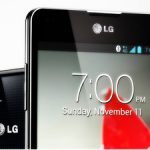
Almost a week ago Sprint announced that it will carry the LG Optimus G for $199 starting in November, and ahead of its release a developer already posted a method to gain elevated rights (also known as "root" among modders) for the quad-core powerhouse coming Sprint's way.
According to the developer rooting the Optimus G for Sprint is done in the same way as for the South Korean version, and only requires to install the LG Android drivers and download the necessary file that performs the process itself. Gaining elevated rights is fairly simple judging by the involved steps that need to be performed, but using this method users will receive a number of prompts in Vietnamese that have to be accepted in order for the process to complete.
LG Optimus G and Samsung Galaxy Note II coming soon to Sprint

Yesterday my colleague Joe Wilcox wrote "AT&T starts LG Optimus G preorders Oct. 16, sales Nov. 2," but today Sprint announced that the LG-made quad-core power-house is coming its way, just like the controversial Samsung Galaxy Note II "phablet".
Unlike the AT&T variant the LG Optimus G will come with a 13MP camera, instead of the 8MP shooter announced yesterday, and it will be available for pre-order from November 1, with sales to start on November 11. On a two-year contract the Qualcomm-powered smartphone will cost $199. Also announced is the Samsung Galaxy Note II, that will be available for purchase on October 25 for $299.99 with a two-year contract.
Just under half of US wireless services now owned by foreign multinationals

With Softbank's majority stake acquisition of Sprint Nextel Corporation, the amount of foreign interest in the United States wireless market is greatly expanded. On the other side of the coin, wholly-American owned wireless companies are beginning to look like an endangered species.
The two largest US carriers, Verizon Wireless and AT&T are mostly owned by American companies, but based upon first quarter 2012 market share figures (source: Strategy Analytics) and corporate ownership percentages, we estimate that 45.3 percent of the United States' wireless market will be controlled by foreign multinational companies pending the regulatory approval of SoftBank's acquisition of Sprint. As the next four years fan out, we must turn our eyes to the smaller national competitors and regional carriers and see how they merge and change.
SoftBank invests $20.1B in Sprint for 70 percent stake

Four days ago Sprint Nextel Corporation confirmed acquisition talks with Japan's third-largest carrier, Softbank Corp, with unspecified details surrounding the transaction at the time. Today the operator from the land of the rising sun announced that it will invest $20.1 billion in Sprint, $12.1 billion of which will give SoftBank a dominant stake of 70 percent in the US carrier.
The two operators expect the transaction to close, pending approval of Sprint's shareholders, the Federal Communications Commission and other regulatory agencies, in the second half of 2013. Combined the two carriers will rank as the third largest operator worldwide according to the press release, a strong position that favors both parties. The Japan-based carrier will provide Sprint $8 billion from the total amount for its balance sheet, mobile network and strategic investments.
Japan's SoftBank talks investment, possible acquisition of Sprint

United States wireless carrier Sprint Nextel Corporation could be an acquisition target for Japan's third-largest mobile carrier Softbank Corp, the U.S. wireless carrier confirmed on Thursday. Sprint has publicly acknowledged that the two companies are "in discussions" over a SoftBank investment, but the exact nature of this investment has not been clarified.
The competitive landscape of wireless networks in the United States is a difficult one, especially with the high cost of building 4G network infrastructure versus the general scarcity of wireless spectrum licenses. The dominant spectrum holders are the two networks with the most subscribers: Verizon Wireless and AT&T. To compete, the smaller national carriers have to look for new growth opportunities.
Verizon and Sprint iPhone 5 still doesn't have simultaneous voice and data
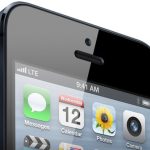
Bad news for anyone who finds themselves needing to look up something on Wikipedia when talking on the phone to their mom, the CDMA/LTE version of Apple's iPhone 5 will not support simultaneous voice and data (SVD). The pure GSM versions of the iPhone 5 will, however allow this feature, so the new buyer must beware.
For this feature to exist on Verizon and Sprint's networks, Apple would have had to install another wireless radio antenna in the iPhone 5. Of course, Apple only began offering CDMA iPhones last year, and those versions did not support simultaneous voice and data, either, so upgrading customers should already be well familiar with this missing feature.
Sprint Samsung Galaxy Nexus gets a dose of Jelly Bean
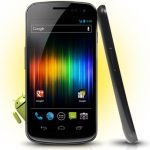
Sprint has (once again) announced the elusive Android 4.1 Jelly Bean is coming to its Samsung Galaxy Nexus variant. But when will you get it is the question. According to a Sprint employee, the update will slowly be rolled-out to the Samsung Galaxy Nexus S as well and it should take "little over a week" for all Nexus S owners to receive Jelly Bean.
Sprint surpassed Verizon in the "race" to deliver Android 4.1 that was nowhere to be seen on the LTE models at least until Sprint announced it. Sprint is rolling out Android 4.1.1 Jelly Bean JRO03R, with a newer build number than the factory images posted by Google on its Developers page.
HTC EVO 4G LTE review
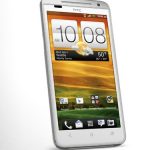
With the roll over to LTE from WIMAX, Sprint has taken the path to have Android 4.x on all its new 4G Android devices, the first being the Google flagship Galaxy Nexus. But one of the first third-party LTE Androids is the update to the HTC EVO line. The original HTC EVO 4G became the top-selling launch-day phone on Sprint back in 2010. Minor updates to the line followed, such as the EVO 3D, as well as a Star Wars-branded White R2D2 model. So how does the new HTC EVO 4G LTE, an Ice Cream Sandwich (Android 4.0.3) using HTC Sense 4.0 UI stack up to the family title in 2012?
The EVO 4G LTE is only 0.35 inches thick, compared to the 0.5 inches of its predecessor, with a form factor of 5.3 inches by 2.7 inches. The screen is a sharp 4.7-inch Capacitive Super-LCD 2 -- 312 dots per inch with 720 x 1280 pixel resolution at 24-bit (16.7 million) color. To watch HD video is a joy; its easy and fair to say it is impressively crystal clear.
Sprint 4G LTE service goes hot in 15 cities in southern United States
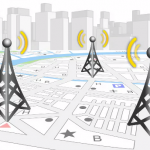
Sprint announced today it has flipped the switch on 4G LTE coverage in 15 cities in the Georgia, Kansas, Missouri, and Texas markets.
Running on the 1900 MHz spectrum, Sprint's LTE will not be as fast as competing networks of Verizon running on the 700 MHz Band 13 frequency or AT&T running at 700 MHz band 17 and 2100/1700 MHz band 4 frequencies. Also Sprint's service is limited by the backhauls to its towers, as well as limited to using only two 5 MHz bands for uplink and downlink. This will only allow speeds of 2Mbps to 3 Mbps on Sprint's current LTE network, far less than AT&T or Verizon.
LightSquared future in doubt as Sprint heads for the exits

LightSquared has struggled with the issue of GPS interference for much of its existence. It is this unfixable issue which threatens the company's entire business, and has its chief backer Sprint set to yank its support as early as next week according to sources.
A March 15 deadline (with unspecified conditions) looms for LightSquared in its deal with Sprint. While the companies will not disclose the terms of the deal, it's not out of the question to expect that this had something to do with its interference issues, as well as a clear way forward. With no strategy in place, Sprint has an opportunity to cut its losses now and move on.
Guess what? Tiered cellular data plans don't reduce usage!

The practice of data speed throttling and the reasons behind it look less sanguine now following the results of a study showing that on average there is little difference between the data usage of the top five percent on both tiered and unlimited plans. So now what's the excuse?
I have been beating the drum against throttling for much of this month on the pages of BetaNews. First was my response to AT&T's unfair treatment of long-time customers. Then Cisco came out a week later with a study that shows consumers are using more data than the carriers lead us to believe. AT&T of course responded to this, blaming you for its bandwidth issues.
You can lose money selling iPhone, just ask Sprint

Be careful what you wish for, because you might get it -- as the old adage goes. Sprint wanted iPhone and got it, and paid dearly during the first quarter of sales.
This morning, before the opening bell, the nation's third-largest carrier announced holiday quarter results and another big operating loss. There, iPhone heavily contributed. The carrier reported a $1.3 billion loss, or 43 cents per diluted share, on revenue of $8.7 billion. Profit margins plummeted to 9.5 percent from 16 percent a year earlier, and iPhone largely accounted for the decline. Sprint loses would actually have been more, but the carrier gained fewer new subscribers than Wall Street expected.
Recent Headlines
Most Commented Stories
BetaNews, your source for breaking tech news, reviews, and in-depth reporting since 1998.
Regional iGaming Content
© 1998-2025 BetaNews, Inc. All Rights Reserved. About Us - Privacy Policy - Cookie Policy - Sitemap.